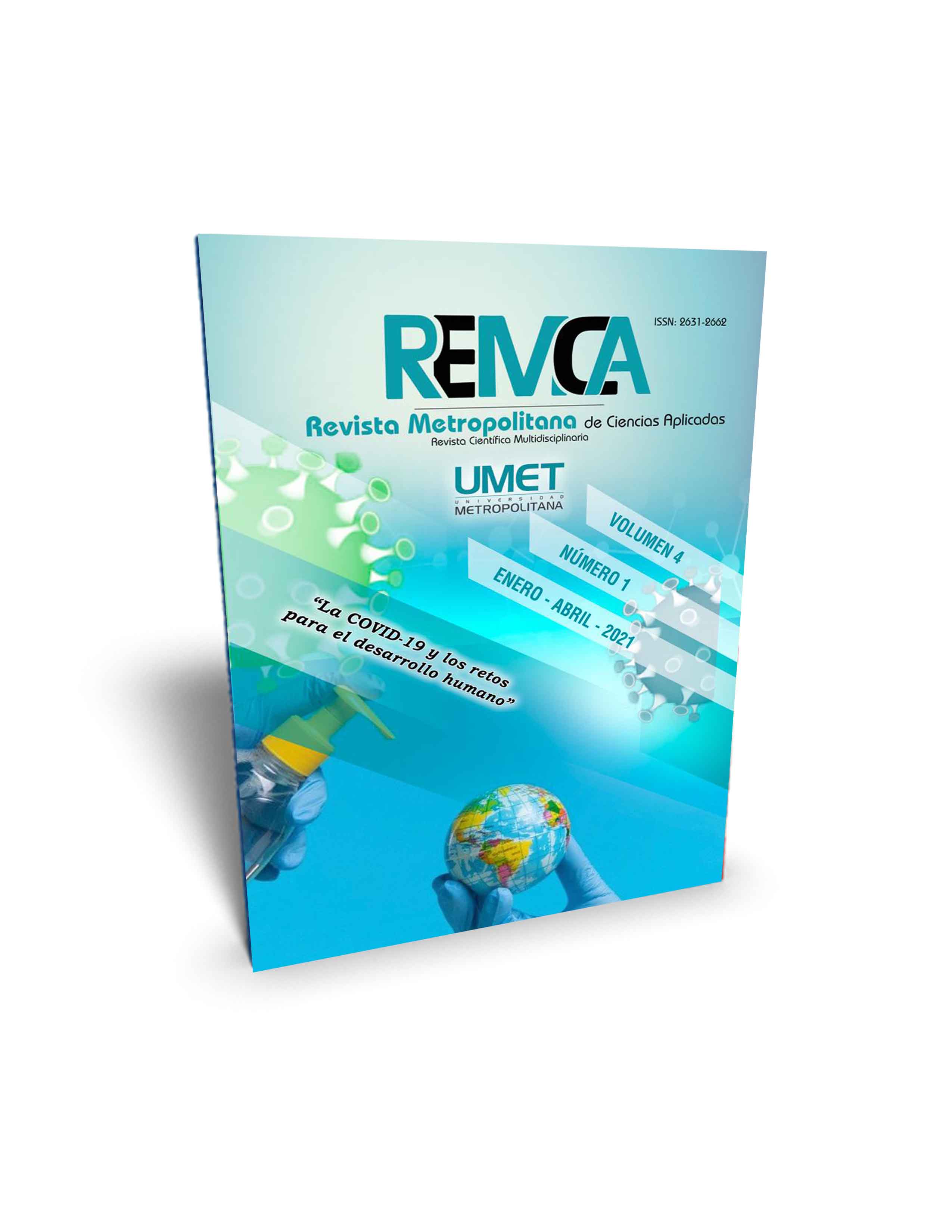Educational proposal for the inferential statistics subject from the research methodology- action
DOI:
https://doi.org/10.62452/q11k7790Keywords:
Research - action, educational praxis, Inferential statistics, mathematical modelAbstract
The work addresses the stages of the research - action methodology to respond to the current needs of the classroom in the Inferential Statistics subject of the Metropolitan University of Ecuador, where educational praxis was focused on theoretical and practical classes, without interaction of statistical assistants. During the study, it is detected that there are shortcomings when focusing the student's effort on the reproduction of the calculations, which due to its complexity, could not reach the objective related to the interpretation of the results of the mathematical model. The insertion of a practical demonstrative class with the use of the R tool in the structuring of the contents of the subject and the teacher's guide with a procedure to follow in solving the problems, enabled the student to reduce the time spent in the solution and allowed to focus the debate on interpretation.
Downloads
References
Acosta Alamilla, S. (2014). La investigación en el aula : aprender a conocer. Trillas.
Bausela, E. (2004). La docencia a través de la investigación - acción. Revista Iberoamericana de Educación, 35(1), 1-9.
Brito Vallina, M. L., Alemán Romero, I., Fraga Guerra, E., & Para García, J. L. (2011). Papel de la modelación matemática en la formación de los ingenieros. Ingeniería Mecánica, 14(2), 129-139.
Cabrera, L. (2017). La investigación-acción: una propuesta para la formación y titulación en las carreras de Educación inicial y Primaria de una institución de educación superior privada de Lima. Educación, 26(51), 137-156.
Castañeda Porras, P., Quintero Silverio, A., & Hernández Vargas, E. (2001). Asistente matemático. Herramienta necesaria en la enseñanza de la matemática. Acta Latinoamericana de Matemática Educativa, 21.
Del Pino, G., & Soledad, E. (2012). Educación estadística: relaciones con la matemática. Revista de Investigación Educacional Latinoamericana, 49(1), 53-64.
Enriquez, P., & Romero, M. (2003). Modalidades y discusiones en torno a la noción de docente-investigador. Anuario Digital de Investigación Educativa, 14, 442-450.
Gómez Esquivel, G. (2010). Investigación – Acción: Una Metodología del Docente para el Docente . Relingüística Aplicada, 7(5).
Latorre, A. (2005). La investigación - acción. Conocer y cambiar la práctica educativa. Editorial Graó.
Plaza Gálvez, L. F. (2016). Modelación matemática en ingeniería. Revista de Investigación Educativa de la REDIECH, 7(13).
Rouquette Alvarado, J. O., Suárez Burgos, A., & Ariza Gómez, E. (2014). Relevancia de la formación estadística, 69, 37-45.
Ruiz Soler, M., & López González, E. (2009). El entorno estadístico R: ventajas de su uso en la docencia y la inestigación. Revista Española de Pedagogía, 243, 255-274.
Downloads
Published
Issue
Section
License
Copyright (c) 2021 Miguel Ángel Fernández Marín, Gheisa Lucía Ferreira Lorenzo, Débora González Tolmo (Autor/a)

This work is licensed under a Creative Commons Attribution-NonCommercial-ShareAlike 4.0 International License.
Authors who publish in Revista Metropolitana de Ciencias Aplicadas (REMCA), agree to the following terms:
1. Copyright
Authors retain unrestricted copyright to their work. Authors grant the journal the right of first publication. To this end, they assign the journal non-exclusive exploitation rights (reproduction, distribution, public communication, and transformation). Authors may enter into additional agreements for the non-exclusive distribution of the version of the work published in the journal, provided that acknowledgment of its initial publication in this journal is given.
© The authors.
2. License
The articles are published in the journal under the Creative Commons Attribution-NonCommercial-ShareAlike 4.0 International License (CC BY-NC-SA 4.0). The terms can be found at: https://creativecommons.org/licenses/by-nc-sa/4.0/deed.en
This license allows:
- Sharing: Copying and redistributing the material in any medium or format.
- Adapting: Remixing, transforming, and building upon the material.
Under the following terms:
- Attribution: You must give appropriate credit, provide a link to the license, and indicate if any changes were made. You may do this in any reasonable manner, but not in any way that suggests the licensor endorses or sponsors your use.
- NonCommercial: You may not use the material for commercial purposes.
- ShareAlike: If you remix, transform, or build upon the material, you must distribute your creation under the same license as the original work.
There are no additional restrictions. You may not apply legal terms or technological measures that legally restrict others from doing anything the license permits.




